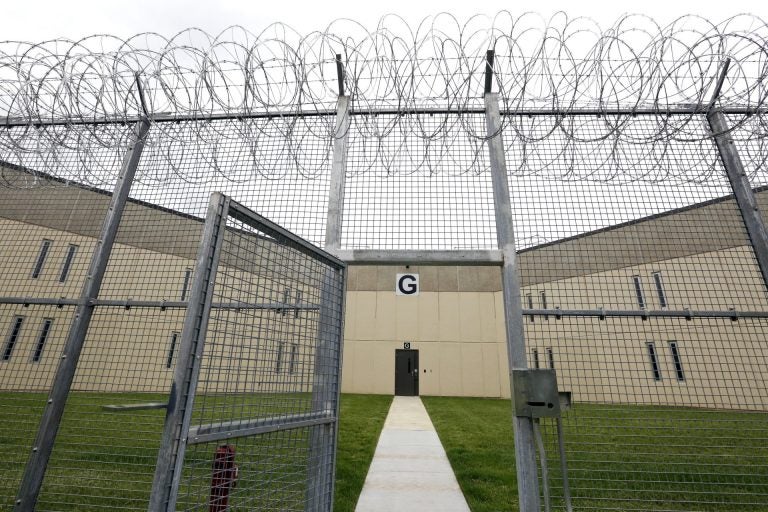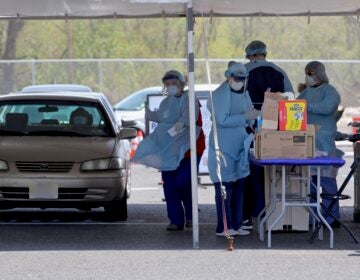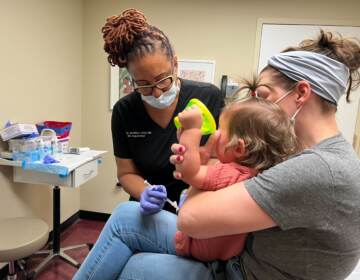Two more people in Pa. state prisons die after testing positive for COVID-19
Two more people incarcerated in Pennsylvania state prisons have died after testing positive for COVID-19, bringing the total to three since the pandemic began.

Block G is toured in the West section of the State Correctional Institution at Phoenix Friday June 1, 2018 in Collegeville, Pa. (Jacqueline Larma/AP Photo)
Two more people incarcerated in Pennsylvania state prisons have died after testing positive for COVID-19, bringing the total to three since the pandemic began.
The latest deaths happened at the end of last week, but did not appear on a public database managed by the state’s Department of Corrections until Wednesday, when the department confirmed their test results.
“They weren’t being tracked on a document our office uses to update the website, but we just got that resolved this morning,” said DOC spokeswoman Maria Finn in an email.
Both men were serving sentences for third-degree murder at SCI Phoenix in Montgomery County, where 27 incarcerated people have now tested positive for the coronavirus, the highest total in the system.
A 40-year-old died on Friday.
A 61-year-old died on Saturday.
Three weeks ago, 67-year-old Rudolph Sutton, also incarcerated at Phoenix, succumbed to the virus while serving a life sentence for a murder advocates say he likely didn’t committ. The Pennsylvania Innocence Project, the organization working to help Sutton get exonerated, identified him.
Citing privacy concerns, the state has not released the names of the other two people who died at SCI Phoenix after testing positive.
The news comes as advocates continue to press elected officials to release more people from Pennsylvania’s state and county jails during the pandemic.
On April 10, Gov. Tom Wolf ordered the Pennsylvania Department of Corrections to establish a program officials hope will slow the spread of COVID-19 behind bars, making certain nonviolent offenders eligible for temporary release during the coronavirus pandemic.
Wolf’s program applies to those who would be eligible for release within the next nine months, or who are considered vulnerable for infection and are within a year of their release date. That includes those who are 65 or older, have an autoimmune disorder or another chronic medical condition, such as heart disease or diabetes.
Under the program, people newly released from prison are placed on house arrest and supervised by parole agents. They will return to prison to serve any remaining time on their sentences once Wolf’s order is lifted.
To date, the program has released 110 people. Officials project up to 1,800 could be temporarily released.
Advocates like Celeste Trusty, state policy director for Families Against Mandatory Minimums, say the state should consider expanding the scope of those released to include older inmates serving long sentences for violent crimes, a group that’s statistically less likely to reoffend.
“The fact that there are now three deaths in DOC custody is extremely concerning for everybody,” said Trusty. “I think this should really light a fire under more people to call for safe and bold decarceration.”
WHYY is your source for fact-based, in-depth journalism and information. As a nonprofit organization, we rely on financial support from readers like you. Please give today.





![CoronavirusPandemic_1024x512[1]](https://whyy.org/wp-content/uploads/2020/03/CoronavirusPandemic_1024x5121-300x150.jpg)


